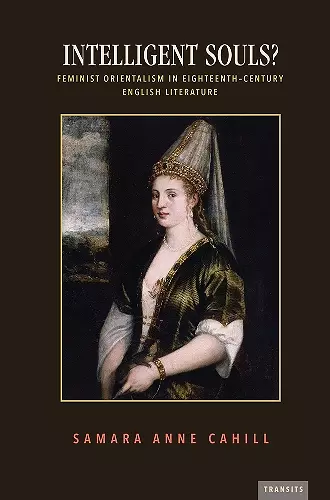Intelligent Souls?
Feminist Orientalism in Eighteenth-Century English Literature
Format:Hardback
Publisher:Bucknell University Press,U.S.
Published:17th May '19
Currently unavailable, and unfortunately no date known when it will be back
This hardback is available in another edition too:
- Paperback£29.99(9781684480975)

Intelligent Souls? offers a new understanding of Islam in eighteenth-century Britain. Cahill explores two overlapping strands of thinking about women and Islam, which produce the phenomenon of “feminist orientalism.” One strand describes seventeenth-century ideas about the nature of the soul used to denigrate religio-political opponents. A second tracks the transference of these ideas to Islam during the Glorious Revolution and the Trinitarian controversy of the 1690s. The confluence of these discourses compounded if not wholly produced the stereotype that Islam denied women intelligent souls. Surprisingly, women writers of the period accepted the stereotype, but used it for their own purposes. Rowe, Carter, Lennox, More, and Wollstonecraft, Cahill argues, established common ground with men by leveraging the “otherness” identified with Islam to dispute British culture’s assumption that British women were lacking in intelligence, selfhood, or professional abilities. When Wollstonecraft wrote A Vindication of the Rights of Woman she accepted that view as true—and “feminist orientalism” was born, introducing a fallacy about Islam to the West that persists to this day.
Published by Bucknell University Press. Distributed worldwide by Rutgers University Press.
"Samara A. Cahill has produced a comprehensive study of one of the central tropes in the evolution of feminist orientalism, from the turbulent 1690's to the revolutionary 1790's, with detailed analyses drawing on a variety of discourses, both competing and complementary, from an impressive array of genres and texts."— Martine W. Brownley, Emory University
"Intelligent Souls? is well written and argued and presents vignettes from hundreds of treatises and novels. Where too many plot synopses can be considered a fault in a work of literary criticism, Cahill shows how this can be done in an interesting way. At the same time, she gives readers access to obscure texts they would not otherwise read but should read if they want to understand the role of Islam in seventeenth- and eighteenth-century English intellectuals’ engagement in polemics around women’s rights as human rights."— Journal of Middle East Women's Studies
"Intelligent Souls? contributes many new avenues for scholarly exploration...Cahill challenges us to understand how Islamophobia entered the proto-feminist rhetoric of the eighteenth century and, further, how it has remained a staple in Western feminism, all without excusing its presence in either period. She handles the most misogynistic of texts without endorsing them. She highlights factually inaccurate information that circulated in eighteenth-century writing, particularly regarding the Islamic faith, and arms her readers with sound analysis that corrects misconceptions about Quranic teachings without giving into the convenience of presentism. Cahill’s interventions in Intelligent Souls? are as much literary as they are historical, theological, and political, and she effortlessly passes between disciplines to produce rich and rewarding scholarship."— Eighteenth-Century Intelligencer
"In Intelligent Souls, Cahill shows how an especially disturbing aspect of anti-Islamic thought—the false notion that Muslims believe women do not have souls—found purchase not only in eighteenth-century Christian theology, but also in British feminism. Troubling and important, this study is crucial reading for all who wish to understand how racism and religious bigotry informed early assertions of (European, Christian) women’s rights, and thus how the work of assembling more intersectional, inclusive feminisms can proceed". — Laura M. Stevens, The University of Tulsa
“Intelligent Souls is essential reading for anyone interested in learning how intelligence, civic personhood, and patriarchal norms were reconstituted through a bigoted fallacy about Islam… In dismantling this Eurocentric narrative, Cahill has laid the groundwork for an intersectional, anti-racist feminism in our time.”
— Humberto Garcia, Eighteenth-Century Fiction"Theologically rich."— Tulsa Studies in Women's Literature
ISBN: 9781684480982
Dimensions: 235mm x 156mm x 25mm
Weight: 463g
244 pages